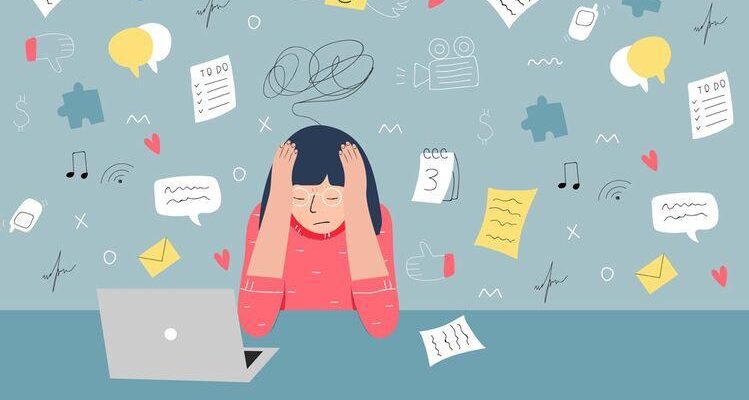While sitting in front of the table, contemplating a sheet of homework, a student’s mind wanders into the black hole of distractions. Suddenly, the ticking of the clock becomes a rhythm, and the yelling children outside transforms into a calling. Is it really that simple to forget about all the temptations? Of course, not.
Every student faces distractions and temptations while they dive into the world of academic responsibilities. What is this feeling that everyone inevitably faces, yet finds it hard to defend themselves?
What is the science behind this craving? Why is it so hard to avoid? Researchers in psychology, cognitive science, and neuroscience, describe disturbed learning as “shallower and spottier.” It interferes with students’ concentration and application knowledge. Professor Shelly J. Schmidt of the University of Illinois at Urbana-Champaign states that ‘work hard and play hard students’ tend to exclusively devote their time to any activity they are engaged in. Whether it is playing or studying. To build this skill, students must be willing to treat their minds.
Sitting in front of their device for 3-4 hour periods can make them look and feel like studyholics, but it actually causes long-term issues like brain inflammation. Neglecting hobbies and physical activity can cause students to feel sluggish and even further distracted.
Generally, students sit hours studying not because of peer pressure, forced learning, or tight deadlines, but the worst of all, guilt to take those 15-minute recreational breaks. Students interviewed by various NGOs expressed their feelings, as they complained about their vulnerability of getting off the study track. Walks, physical exercise, and outdoor breaks present various benefits to students. Serotonin, produced as a result of more oxygen promotes energy and a better mood. Walking, physical exercise and outdoor activities encourage diaphragmatic breathing, which allows students to cleanse and feel fresher.
What can we do?
Keep a schedule:
Sometimes, it helps to write down and command yourself. Without a study schedule, you can find yourself sitting for uncounted hours in front of the screen. A 10-minute break for every hour? What about a sip of water and a short stroll outdoors every 3 hours? Knowing what you’ve done and understanding what is left, can improve your critical study calculation.
Try to stay engaged, even while studying:
Students tend to get distracted when studying monotonously, so it helps to keep switching between study methods. 30 minutes of note-taking, 30 minutes of past papers. Even though this constant shifting may sound slightly disturbing, it can help activate all kinds of learning and allow the student to better understand the concept.
Fresh Air, don’t spare:
It is very important that a student takes the right kind of a break, not the one where you slouch in front of the tv, or the one where you indulge in some sweet cravings. A perfect break is when you are amidst fresh air and outdoors. Take a walk where you can develop conversations with friends. Well, afraid to go outside? Stand for a minute or two at your home’s balcony and maybe play a game of “I spy!”
Why do we still seem so stressed after studying? How can I relieve myself and gear up for more after my long-awaited exams?
For many children, exam stress and pressure linger even after the examination. It can be disturbing for some, but for others, it may result in poor physical activity. I solved this issue by creating a bucket list. I listed down interesting videos to watch, 5-minute recipes, and some articles and books I could read. As I built my To-do list every day, I got more excited about my after exam recreational schedule, this allowed me to have a summer that was much more exciting!
Sometimes, you may be limited to a few activities, but make the best of them! Planting, social projects, fundraising, and other exciting activities can help relax your brain.
Wait a minute! What about my co-curricular activities? I may lose interest after my month-long exam study!
Exams and extended activities DO NOT mean that it is a no-enjoy time! While studying, it is best to also work on your passions and co-curricular activities parallelly. Dancing, singing, art, running, or sports… wherever your charm is, don’t let go. Allot an hour or two for your favorite activities and talents.
Now, I think it is best you start preparing a study schedule for your next examination, remember, have fun while studying, and enjoy the best of it!


